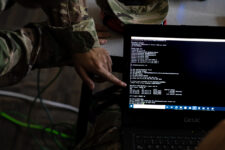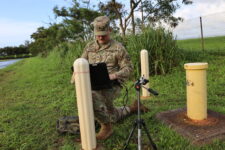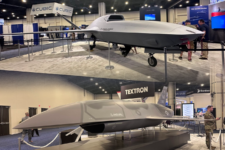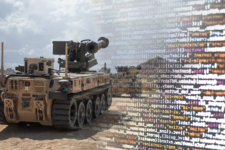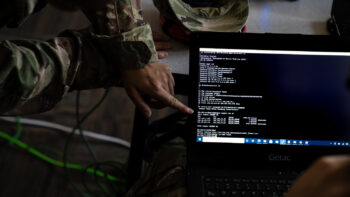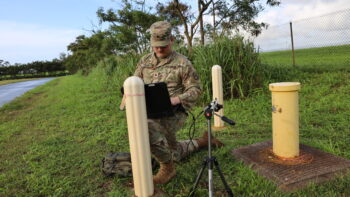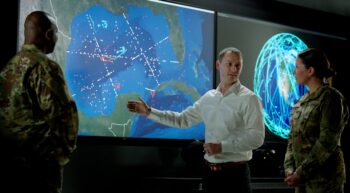 UPDATED San Antonio: After a decade of enormous budget increases the American intelligence community’s budget will probably decline by billions of dollars, Director of National Intelligence Jim Clapper said here.
UPDATED San Antonio: After a decade of enormous budget increases the American intelligence community’s budget will probably decline by billions of dollars, Director of National Intelligence Jim Clapper said here.
Clapper told more than 3,000 people at the annual Geoint conference that the intelligence community’s budget had been handed in to the White House’s Office of Management and Budget. “We are all going to have to give at the office,” Clapper said. The bulk of the cuts will come from accounts labeled information technology, he said.
The commitment to cut across the intelligence budget poses an important challenge for Clapper, as he made clear to the audience. The president told him, “this was a litmus test for the Office of National Intelligence.” After a decade of intelligence increases, which allowed all boats to rise, this is the first real test of the DNI’s ability and clout to control the fractious intelligence community which has historically resisted central control.
“We are all going to have to share in the pain,” Clapper said in a clear message to the Defense Department and the alphabet soup of agencies that comprise the intelligence community: CIA, NGA, NSA, NRO, DIA, FBI, Coast Guard and the intelligence agencies of the military services.
The biggest portion of the cuts, spread across 10 years, will come from anything labeled information technology, the director said. IT provides “huge potential for savings,” he said. How will it yield savings? Clapper said cloud computing — while not a “panacea” — makes possible much of those savings.
In a remarkable commitment, Gen. Keith Alexander, head of both the National Security Agency and of Cyber Command, told Geoint that NSA operations will move to the cloud by the end of this year.
Moving to the cloud, will provide huge savings of 30 percent to 40 percent savings in the NSA’s IT budget. He predicted the same can be achieved “across the intelligence community and the same across the Defense Department.” Moving to the cloud enables better security in some respects, Alexander said. All systems receive all security patches at the same time, for example. It also removes updating systems from the hands of a large number of humans, making it more certain they will happen.
Alexander also said moving to the cloud allows them to operate at faster speeds, which is critical to NSA and to other intelligence agencies.
Space Force celebrates 5th anniversary at growing Spacepower Conference
Our latest eBook offers updates on the Space Force and SPACECOM, showcasing the latest tech, and the challenges of modern space operations.

